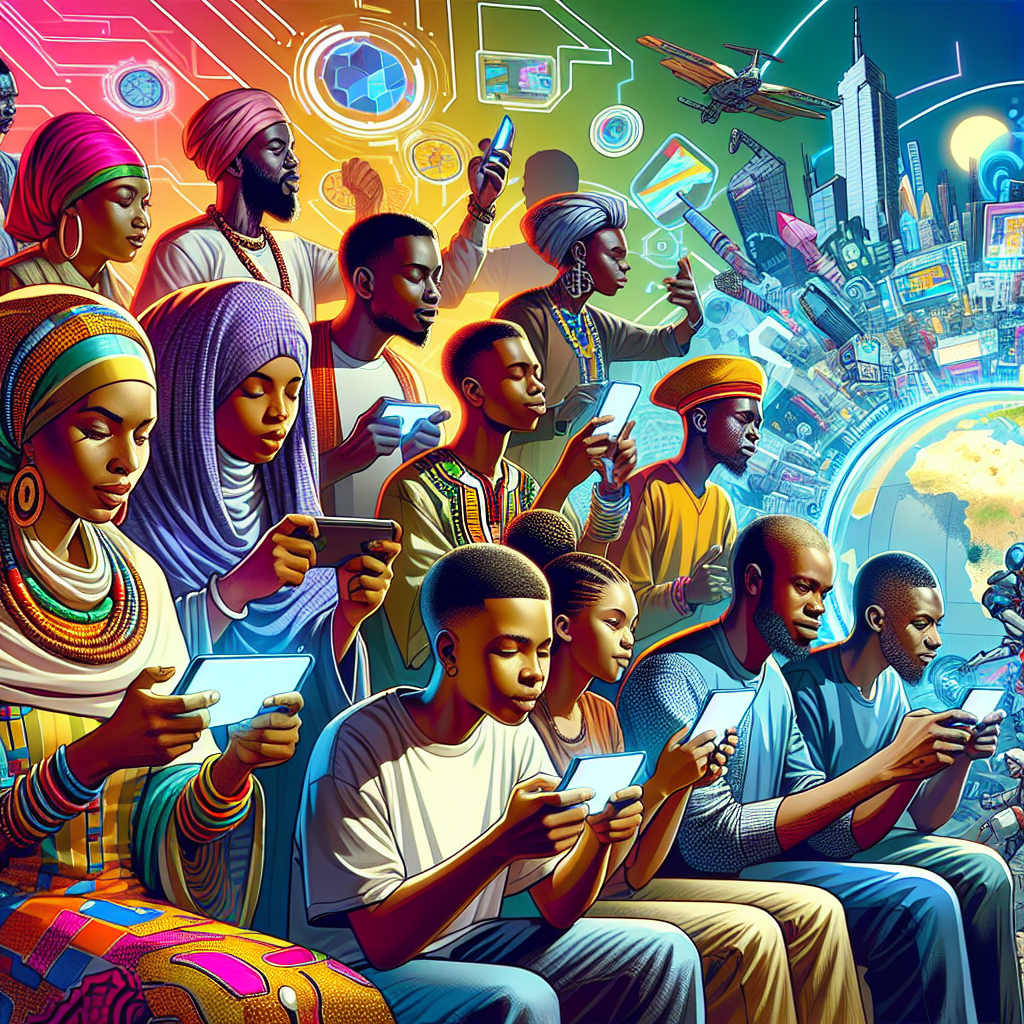Mobile Gaming Dominance: Why Africa is Driving the Future of Mobile Games
In the ever-evolving landscape of the global gaming industry, one region stands out with astonishing potential: Africa. With its burgeoning youth population, increasing smartphone penetration, and unique socio-economic dynamics, Africa is not just a participant in the mobile gaming revolution; it is becoming a key driver of the future of mobile games. This article explores the factors that contribute to Africa’s growing dominance in the mobile gaming sector and the implications for developers, gamers, and the industry at large.
A Youthful Demographic
Africa is home to the youngest population in the world, with an average age of just 19 years. This youthful demographic is not only tech-savvy but also increasingly engaged in digital platforms, making them an attractive audience for mobile game developers. As young people across the continent become more integrated into the digital economy, their spending power and preferences are shaping the gaming landscape.
Moreover, the increasing literacy rates and the availability of educational resources mean that this demographic is more informed and discerning when it comes to gaming choices. They seek content that resonates with their cultural experiences and social milieu, paving the way for homegrown games that celebrate African narratives and aesthetics.
Smartphone Penetration
Accessibility to smartphones has dramatically changed the gaming environment in Africa. According to recent statistics, smartphone penetration across the continent is expected to reach 80% by 2025. This rapid growth in mobile technology has made it possible for millions of people to access high-quality games previously reserved for more developed markets.
Mobile devices have become the primary pathway for digital interaction, with gamers turning to their phones for entertainment, education, and social connection. The affordability of devices, coupled with reduced data costs, has opened up gaming to a larger audience. As a result, mobile games that are light on data usage and highly engaging are becoming increasingly popular.
A Thriving Ecosystem
Several factors contribute to the creation of a thriving gaming ecosystem in Africa:
-
Local Game Development: Local developers are stepping up to fill the gap by creating culturally-relevant games that reflect African stories, languages, and identities. This shift from global franchises to local storytelling in games is vital for resonating with African players and establishing a unique gaming identity for the continent.
-
Infrastructural Development: Investments in internet infrastructure, particularly in urban areas, have facilitated online gaming experiences. As broadband reaches more users, the potential for multiplayer and immersive gaming experiences increases, making the gaming environment more competitive and engaging.
-
Esports and Competitive Gaming: The rise of esports in Africa has caught the attention of gamers and sponsors alike. With numerous tournaments and leagues springing up across the continent, competitive gaming is fast becoming a significant aspect of the mobile gaming landscape. This not only elevates gaming as a professional pursuit but also encourages a sense of community and collaboration among players.
- Investment and Funding: Recognizing Africa’s potential, international investors are increasingly looking to inject capital into the continent’s gaming ecosystem. Startups focused on mobile gaming are receiving funding to develop innovative games, and established gaming companies are branching out into African markets, expanding the financial and creative resources available for game development.
Cultural and Social Dynamics
The rise of mobile gaming in Africa is also deeply intertwined with cultural and social dynamics. Games that incorporate local folklore, music, and languages foster a sense of community and identity among players. Additionally, with many people using gaming as a means of social interaction, mobile games help bridge geographical divides, connecting individuals across countries and promoting cultural exchange.
Moreover, mobile gaming serves as a platform for addressing social issues, including education, health awareness, and economic challenges. Developers are increasingly creating games that not only entertain but also educate, offering valuable insights into critical issues faced by communities.
The Future: Challenges and Opportunities
Despite the promising trajectory, challenges remain. These include piracy, limited access to payment mechanisms, and an often fragmented market across different countries and languages. However, addressing these challenges presents opportunities for innovators. Solutions such as localized payment systems, collaborations with telecom companies, and the development of robust anti-piracy measures can bolster growth in the sector.
Conclusion
As the global gaming industry shifts towards mobile-first strategies, Africa stands at the forefront of a transformative era in gaming. The combination of a youthful demographic, increasing smartphone access, a vibrant ecosystem of local developers, and innovative use of technology creates a fertile ground for mobile gaming to flourish.
Africa is not just following global trends in mobile gaming; it is setting the stage for what the future of mobile games will look like. By embracing local cultures and stories, leveraging technology, and fostering community, Africa is not only embracing its role in the gaming industry but also reshaping it for generations to come. The continent is ready to take its place on the global stage, leading the charge in mobile gaming innovation and creativity.




